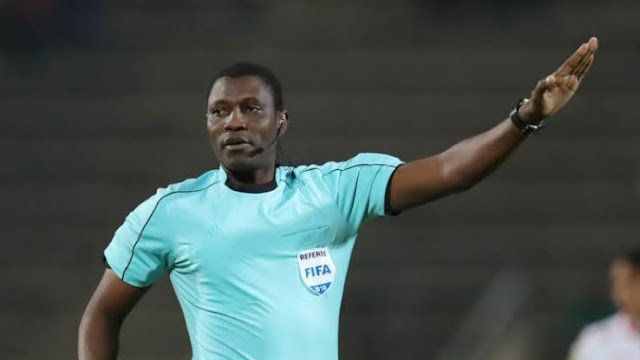Laws of the Game 2020/21 - Get to Know the Recent Changes [Free PDF Download]
With the level of your love for the beautiful game of football, it will be almost embarrassing if you are caught unaware of the new laws and some of the adjustments made recently to give the game more integrity and more enjoyable by all.
[Free Download] The Laws of the Game 2020/21 As Revised
In the Spirit of the Game
Football is the greatest sport on earth. It is played in every country and at many different levels. The Laws of the Game are the same for all football throughout the world from the FIFA World Cup final through to a game between young children in a remote village. That the same Laws apply in every match in every confederation, country, town and village throughout the world is a considerable strength which must be preserved. This is also an opportunity which must be harnessed for the good of football everywhere.
Football must have Laws which keep the game ‘fair’ as a crucial foundation of the beauty of the ‘beautiful game’ is its fairness – this is a vital feature of the ‘spirit’ of the game. The best matches are those where the referee is rarely needed as the players play with respect for each other, the match officials and the Laws.
The integrity of the Laws, and the referees who apply them, must always be protected and respected. All those in authority, especially coaches and team captains, have a clear responsibility to the game to respect the match officials and their decisions.
Football must be attractive and enjoyable for players, match officials, coaches, as well as spectators, fans, administrators etc. The Laws must help make the game attractive and enjoyable so people, regardless of age, race, religion, culture, ethnicity, gender, sexual orientation, disability etc. want to take part and enjoy their involvement with football.
Football’s Laws are relatively simple, compared to other team sports, but as many situations are ‘subjective’ as referees are human (and thus make mistakes) some decisions will inevitably cause debate and discussion. For some people, this discussion is part of the game’s enjoyment and attraction but, whether decisions are right or wrong, the ‘spirit’ of the game requires that referees’ decisions are always respected.
The Laws cannot deal with every possible situation, so where there is no direct provision in the Laws, The IFAB expects the referee to make a decision within the ‘spirit’ of the game – this often involves asking the question, “what would football want/expect?”
The IFAB will continue to engage with the global football family so changes to the Laws benefit football at all levels and in every corner of the world, and so the integrity of the game, the Laws and the referees is respected, valued and protected.
The Evolution of the Football Laws
The first ‘universal’ football Laws were drawn up in 1863 and in 1886. The International Football Association Board (The IFAB) was founded by the four British football associations (The FA, Scottish FA, FA of Wales and Irish FA) as the worldwide body with sole responsibility for developing and preserving the Laws of the Game. FIFA joined The IFAB in 1913.
For a Law to be changed, The IFAB must be convinced that the change will benefit the game. This means that the potential change will usually be tested. For every proposed change, the focus must be on: fairness, integrity, respect, safety, the enjoyment of the participants and how technology can benefit the game. The Laws must also encourage participation from everyone, regardless of background or ability.
Although accidents occur, the Laws should make the game as safe as possible. This requires players to show respect for their opponents and referees should create a safe environment by dealing strongly with those whose play is too aggressive and dangerous. The Laws embody the unacceptability of unsafe play in their disciplinary phrases, e.g. ‘reckless challenge’ (caution = yellow card (YC) and ‘endangering the safety of an opponent’ or ‘using excessive force’ sending-off = red card (RC).
The Revolution of 2016/17
The 2016/17 revision of the Laws of the Game started the most far-reaching and comprehensive period of Law changes in The IFAB’s history. The aim was to make the Laws clearer, more accessible and to ensure they reflect the needs of the modern game at all levels.
Many of the changes were the result of suggestions from individuals, groups and national FAs from around the world which were then reviewed by The IFAB’s Football and Technical Advisory Panels to ensure that all areas of football contribute to the evolution of the Laws, as the Laws are for everyone involved in the game, not just the referees.
The changes in recent years have extended many of the principles established in the 2016/17 revision and, as outlined in the ‘play fair!’ strategy, have tried to improve the game’s attractiveness and the levels of behaviour.
In March 2018, The IFAB AGM approved use of video assistant referees (VARs). The introduction of VARs has been the biggest revolution in professional football for more than a century. Given that it took football many years of debate before it took the tentative steps to see if technology could assist decision-making without destroying the game’s almost non-stop flow of action and emotion, it has been a remarkably fast ‘revolution’.
The first VAR match took place in New Jersey, NY, the USA on 12th August 2016 and, remarkably, only 23 months later, VARs were being used in the 2018 FIFA World Cup™ final in Moscow.
VARs will never solve every ‘dispute’, as so many decisions are subjective, but their adoption by most of the world’s major The IFAB will continue to experiment with significant Law changes and in the coming year, there will be trials of special substitution procedures for a player who has sustained a head injury and may have, or develop, concussion.
In recent games after the Covid-19, have seen some leagues in Europe experiment on few additions, that allowed five changes and two period of cool down break. Weather that will bring about a further adjustments in the game, though some have argued that such breaks affects the momentum of play. Get updated before the new season kick-off
[Free Download] The Laws of the Game 2020/21 As Revised











![MTE 2021 Football Trials Lagos Nigeria - This February [How to Participate]](https://1.bp.blogspot.com/-2WB0X4rJgEQ/X-mKYkf-chI/AAAAAAAAcH8/g12D7IFOgTUusvUiSoeatIj2ADIHDI3OwCPcBGAsYHg/s72-w640-c-h536/20201228_083110_0000.png)


No comments